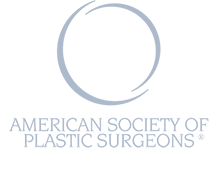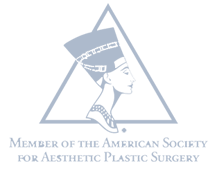The Little Black Book of Plastic Surgeons
Okay, you’ve been thinking about that cosmetic procedure for a while now. The kids are off at camp and you’ve got some time to yourself. It’s the perfect time to make that little (or big) change and get the face, body, and outlook you’ve always wanted. There are plenty of plastic surgeons in our region, but how do you begin to choose the one who will perform your procedure? Your first concern should be safety. While there’s no reason to be unduly alarmed, plastic surgery is still surgery and that means there are risks. “In general, plastic surgery is safer than getting in an airplane and safer than driving your own car,” says Dr. Fredric Newman of Darien, CT. But just as you wouldn’t get on a plane without some assurance that there was a licensed pilot at the controls, you shouldn’t walk into a plastic surgeon’s office until you’ve done your homework to make sure you’re in safe hands. To help you do your due diligence, please see “Quizzing Your Doctor”. Of course, when it comes to plastic surgery, safety isn’t all that counts. To help you get the results you’re after, we asked some of the region’s best-known plastic surgeons to tell us what they do best and why. And before anyone gets the wrong idea, the fact that Dr. X is known for her facelifts doesn’t mean that she’s lousy at everything else. Quite the contrary! Many of the doctors listed here are accomplished at a variety of plastic surgery procedures. But just as Oscar-winning actors get known for a certain breakout role, these doctors have a reputation for being particularly good at certain surgeries. If you’re considering making a date for “a little work,” consider this your little black book. Dr. Andrew Kleinman 800 Westchester Ave., Suite 512 Rye Brook, 253-0700 Specialty: Breast augmentation What makes for a good cosmetic result? “Basically you have to go to somebody who has experience selecting the appropriate size and placing the implant,” says Dr. Andrew Kleinman. “If you look at women with implants that have too wide a base, she looks like Betty Boop; too narrow and it looks like she’s got two tennis balls. The base diameter of the implant has to be appropriate for the frame of the patient. Once you have the base diameter correct, you have to evaluate the thickness of the soft tissue and the patient’s overall body shape and type to see how much projection is appropriate. Different implants have different amounts of projection. If you get that part wrong, you’ll never get a great result.” Kleinman says placement is equally important. “Some women want their breasts close together so they have more cleavage in clothing, but if you ignore placement of the nipples, they’re not in the correct position on the breast mound.” Should the implant be under or over muscle? “I place them under the muscle in a majority of patients,” says Kleinman. “There’s less roundness of the implant that way and because it’s covered up, there’s less visibility of wrinkles in the implant and it makes it easier to read mammograms.” If it sounds like he knows his stuff, it’s because he’s been doing this for some time now. “The first implants I placed were in 1979, so I’ve been doing these for over 30 years,” he says. “I worked with the inventor of the breast implant, Frank Gerow. I love doing this procedure because the incidence of problems is extremely low and satisfaction is very high. They’re the happiest patients in the world.” Average Cost: Breast augmentation is generally between $6,000 and $10,000. Quizzing Your Doctor The personable doctor you met for the consultation sounded terrific. He was reassuring and solicitous. His office wall was covered by impressive framed diplomas, his waiting room had a white leather couch you saw in Architectural Digest, and your friend says that all the women in her Zumba class swear by him. That’s all well and good but it isn’t good enough. To make sure you’re in the best possible hands, you have to do some homework. Dr. Andrew Kleinman, President-elect of the New York State Society of Plastic Surgeons and past President of the Westchester County Medical Society says your first question should be about your doctor’s certification. “When someone says he’s ‘board certified’, be very careful about which board and ask if it’s recommended by the American Board of Medical Specialties (ABMS),” suggests Dr. Kleinman. “There are a lot of made-up boards. If it’s not recognized by the ABMS, it’s a self-proclaimed board.” According to Dr. Kleinman, if your doctor purports to be a plastic surgeon, “He or she ought to be a member of The American Board of Plastic Surgery. That’s the only board that’s recognized by the American Board of Medical Specialties to certify plastic surgeons.” If you’re seeing a legitimate facial plastic surgeon, their board certification might be as an otolaryngologist instead. “They take an additional exam where they become certified in facial plastic surgery,” Kleinman explains. “While neither certification guarantees that you’re the best surgeon, they do guarantee a certain level of training and experience.” Once you’ve checked your doctor’s credentials, visit the New York State Department of Health’s website, www.nydoctorprofile.com, and the website for the Office of Professional Medical Conduct, www.health.state.ny.us/professionals/doctors/conduct to see if your doctor has been disciplined. If so, that’s obviously cause for concern. Next, ask about your surgeon’s hospital affiliation. “If your procedure involves anything more than local anesthetic, it should be done in an accredited facility,” says Kleinman. “Even if you don’t think you want your surgery performed in a hospital, ask your surgeon if he or she would be willing to do it there. If the surgeon is credentialed to operate in a hospital, that’s a good sign; but if not, that means something.” In other words, it might very well mean that no hospital will let that doctor operate in their facility. Once you’ve checked on your doctor’s basic competence, “You want to make sure that the plastic surgeon has experience in the area that you’re interested in,” says Kleinman. “You want to see ‘before’ and ‘after’ pictures of his or her work.” Should you ask how many similar procedures he or she has performed? “It’s difficult to say whether the number of procedures a doctor has performed is particularly significant. There’s no magic number that guarantees a surgeon knows what he or she is doing. Surgical technique is always changing so if it’s new, the number of procedures performed is going to be low. The bottom line is that reputation and results are more important.” Dr. Kleinman says he likes to see a surgeon whose expertise includes reconstructive as well as cosmetic work. “I used to work on repairing facial fractures,” he says. “There’s nothing like doing that for learning facial anatomy and a lot of what I learned about cosmetic surgery is built on that foundation.” Finally, once you think you’ve found the right doctor, Kleinman recommends that you ask your primary care physician about him or her. “You’re not asking your doctor for recommendations so much as what he or she might have heard about that plastic surgeon. There are some surgeons who are very charming and appear very competent but the medical community often hears otherwise.”







